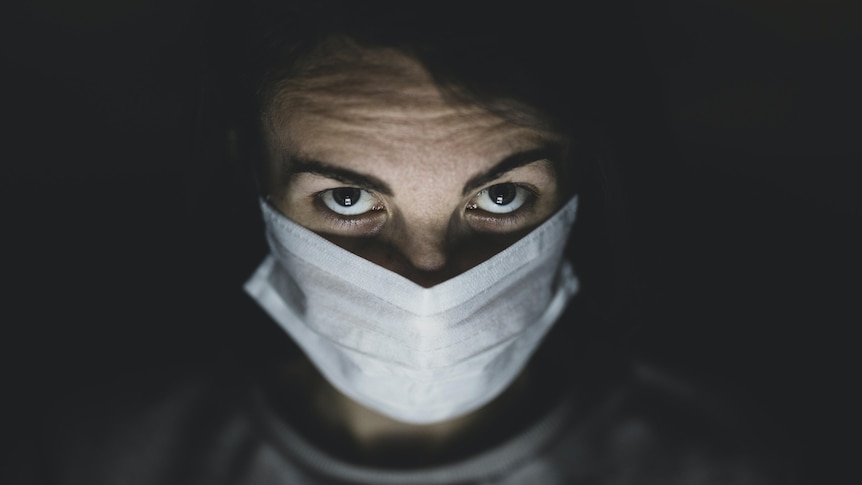Long-COVID diagnoses and long-term symptoms among nonhospitalized adults were tied to 43% and 44% increases in the costs of primary care, respectively, in the United Kingdom, according to a study published yesterday in BMC Primary Care.
Comments closedCategory: News
The eighth COVID-19 wave is here. Could catching it trigger Alzheimer’s, Parkinson’s or autoimmune disorders?
From the earliest days of the COVID-19 pandemic, scientists have raised concerns about the potential for long-term health problems linked to SARS-CoV-2 and warned repeated infections are likely to increase the risk.
An association between COVID and cardiovascular disease emerged quickly.
And now — almost exactly four years since the first case was discovered in Wuhan — a growing body of scientific research is cautiously linking the inflammation caused by a COVID infection to diseases like Alzheimer’s and Parkinson’s as well as autoimmune conditions from bowel disease to rheumatoid arthritis.
Comments closedN.B. COVID-19 death toll increases by 4, child under 4 hospitalized
COVID-19 has killed at least four more New Brunswickers aged 65 or older, and a child under four is among those hospitalized for or with the virus between Nov. 5 and Nov. 11, figures released by the province Tuesday show.
Comments closedFormer British Prime Minister Boris Johnson ‘bamboozled’ by science, COVID-19 inquiry told
Boris Johnson, the former British prime minister, struggled to come to grips with much of the science during the coronavirus pandemic, his chief scientific adviser said Monday.
In keenly awaited testimony to the country’s public inquiry into the COVID-19 pandemic, Patrick Vallance said he and others faced repeated problems getting Johnson to understand the science and that he changed his mind on numerous occasions.
Comments closed10-minute procedure may repair distorted sense of smell in COVID survivors
A new minimally invasive procedure may restore COVID-related impaired sense of smell, suggests a small study to be presented at next week’s Radiological Society of…
Comments closedLake of the Woods District Hospital is experiencing a COVID-19 outbreak within part of its campus.
Comments closedMore free COVID-19 tests from the government are available for home delivery through the mail
Americans can order more free COVID-19 tests online for home delivery.
The U.S. government is offering to send another round of four at-home virus tests ahead of the typical surge in cases during the winter holiday season.
Anyone who did not order a batch of four COVID-19 tests in September can secure up to eight of them this time around starting Monday at COVIDtests.gov. The U.S. Postal Service will deliver them for free.
Comments closedWith COVID surging, should I wear a mask?
COVID is on the rise again, with a peak likely over the holiday season. Given this, health authorities in a number of Australian states have…
Comments closedDoes Novavax’s Covid vaccine cause fewer side effects?
Erin Kissane, a co-founder of the COVID Tracking Project, rolled up her sleeve for the Novavax Covid-19 vaccine in mid-October soon after it was finally recommended in the United States. Like many people with autoimmune diseases, she wants to protect herself from a potentially devastating Covid infection.
Kissane’s autoimmune arthritis seems to make her susceptible to unusual vaccine side effects. After getting an mRNA booster last year, her joints ached so painfully that her doctor prescribed steroids to dampen the inflammation. She still considers the mRNA vaccines “miraculous,” knowing Covid could be far worse than temporary aches.
Comments closedPhysicians’ Refusal to Wear Masks to Protect Vulnerable Patients—An Ethical Dilemma for the Medical Profession
On May 11, 2023, the US federal government put an end to the COVID-19–related public health emergency. The US Centers for Disease Control and Prevention (CDC) no longer recommends routine universal masking in most health care settings. Many clinicians and staff at hospitals, clinics, and nursing homes around the country have stopped regularly wearing masks. A conflict might arise when patients who are immunocompromised or have other risk factors that increase their susceptibility to COVID-19 complications seek health care and encounter an unmasked clinician. Individuals who have such conditions are considered disabled under the Americans with Disabilities Act (ADA). Those disabled patients nowadays must embark on a “personal crusade for public health” to have their needs met.
Comments closedWA public hospitals strengthen mask-wearing requirements in response to surging COVID cases
Surging COVID cases in Western Australia has seen the first public health measures introduced since the state’s COVID-19 ‘state of emergency’ declaration was dropped.
From Monday, all staff and patients in high-risk hospital clinical areas must wear masks.
Comments closedCOVID-19 numbers down, flu and RSV up in B.C.
New data suggests that COVID-19 activity in British Columbia is trending downward, while influenza and RSV are on the rise.
Comments closedLake of the Woods District Hospital is dealing with a COVID-19 outbreak.
Comments closedCOVID-19 : la justice rejette la contestation de la loi sur les mesures d’urgence au Yukon
A Yukon judge rejected legal challenges to the Territorial Civil Emergency Measures Act (CEMA) that was used to implement and enforce health rules during the…
Comments closedCambridge Memorial Hospital and St. Marys Memorial Hospital in the town of St. Marys have both declared COVID-19 outbreaks.
Comments closedB.C. hospitals breaking capacity records
It’s only November, but B.C.’s hospitals are already breaking annual capacity records.
Comments closed
